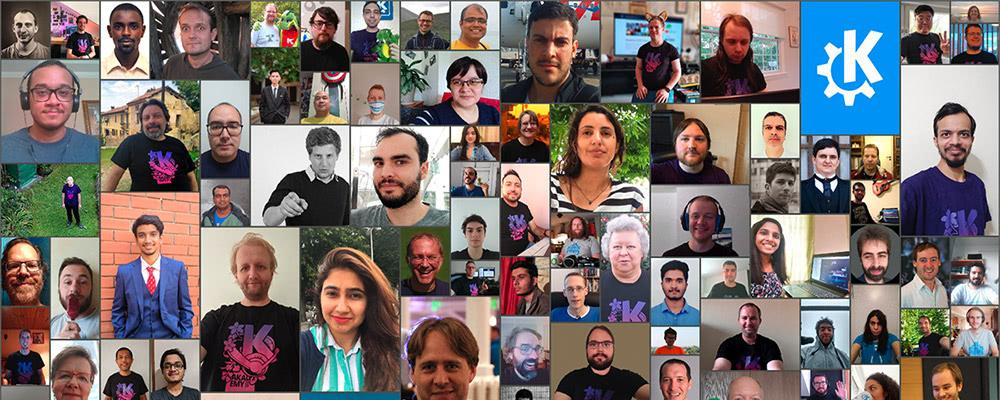
KDE Akademy 2020 Brings Together Open Source Community
*Image courtesy of KDE.org
I had the opportunity to attend Akademy 2020, KDE’s annual world summit — a free, non-commercial event organized by the KDE community. In case you’re not familiar with KDE, it’s an international team cooperating on development and distribution of free, open source software for desktop and portable computing. Not only is it one of the largest free software communities in the world, KDE is also one of — if not the — largest communities using Qt.
Due to the pandemic, the 2020 event was held virtually September 4-11. The first day encompassed training sessions with several happening simultaneously in different “rooms,” while the next two days featured a series of shorter talks revolving around interesting projects. There were five additional days of BoFs meetings and workshops, during which community members discussed topics relevant to their own specific groups and technical interests.
I found these three presentations particularly interesting:
QML Online Editor
QML Rapid Prototyping by Patrick José Pereira, which highlighted his project QmlOnline, was one of the cooler things I have seen done lately with Qt. The online editor for QML allows you to edit and preview QML in real time. You can also embed QML into your web page using QML Online.
If you’re new to Qt and want to try out some QML, go to Pereira’s project page and hack away. The page includes several examples designed to help those new to QML learn more about it. Along with the base QML import, you can import almost every QML module. You can also access the KDE framework Kirigami, which is an extension to QML that provides many components to aid in application development.
KDenLive Multi-Track Editor
KDenLive: A Journey of Being a Leading Open Source Video Editor was another very intriguing presentation that explored KDenLive, KDE’s multi-track video editor. In the past, there’s been a lack of decent video editors for Linux. If you were editing a video and wanted to compose scenes or add some effects, you were forced to use proprietary software for those tasks. But KDenLive changed that.
It has been around since 2003 but really began to mature in 2008 when the current maintainer started working on the project. Now, KDenLive is a feature-full, mature multi-track video editor that can do things like track objects in a scene, speed up and slow down tracks with audio pitch correction, and even support GHNS for transitions and effects so users can download or share with the community effects they’ve made.
Octoprint
I found Gina HäuBge’s talk Adventures in Open Source Development about her experiences in open source 3D printing quite engrossing because I’m also working on a 3D printer project. I'll bet many of you are as well. Octoprint allows you to remotely control your 3D printer using an embedded board like a Raspberry Pi to run the machine while providing a web-based interface exposing the controls for the printer. Though hers was a less technical and more personal talk, it was revealing to hear about her motivation — how and why she got involved with open source projects and her experience in those projects.
Looking Forward to Next Year
As a Qt developer involved with KDE, I appreciate the opportunity to get together — even virtually — with colleagues in the community to share my projects and learn about others. This year’s Akademy 2020 did not disappoint! If you’d like to watch the talks I mentioned — or any of the other presentations — visit the KDE Community youtube channel. And, If you’re interested in Qt, KDE or open source software, I would highly recommend attending next year’s event — which hopefully will be held in person.